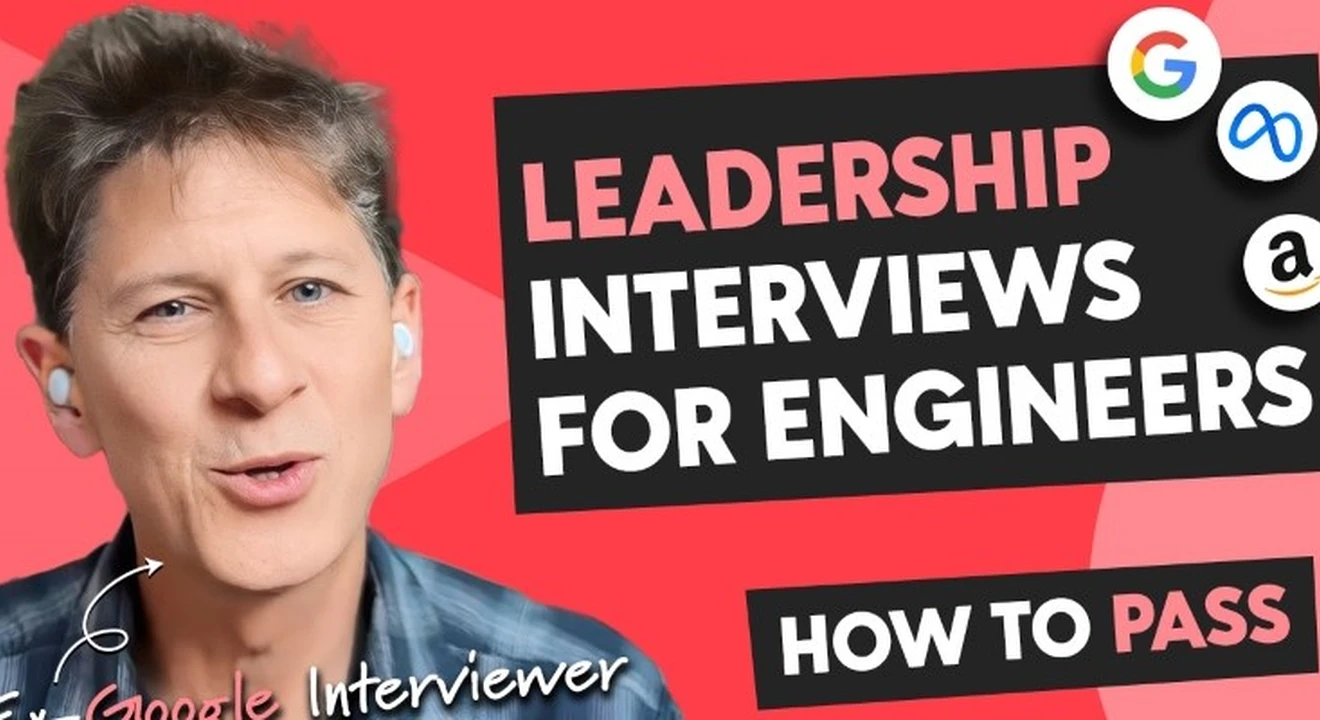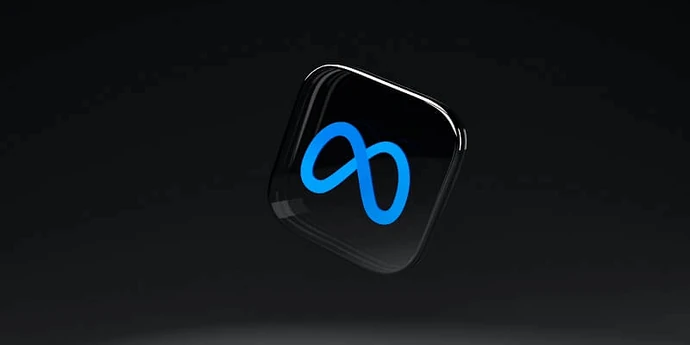Are you interviewing for an engineering manager role at a big tech company? To land an offer, you’ll need to nail your leadership interviews.
I have interviewed hundreds of candidates during my 30-year career in tech (13 of those at Google), and I’ve coached hundreds of clients looking to land leadership positions in tech over the past few years.
In this article, I’d like to share some of my interviewing techniques in the hopes that it can help you provide more relevant, structured, and efficient responses to leadership interview questions in engineering management interviews.
At the end I’ll also link to some free resources so that you can fully prepare for the other areas of your engineering management interview, including coding and system design, without needing to pay for a course.
Here’s an overview of what I’ll be covering in this article:
- Understanding the engineering management interview process
- Grokking the leadership interview (techniques)
- Grokking the technical interviews (resources)
- Final thoughts
Disclaimer: the techniques included below are guidance/tools - not recipes/scripts. I recommend trying out and practicing a mix of them so that you can use the ones that help you remain true to your communication style.
1. Understanding the process
The engineering management interview process is fairly similar across the top companies, but it can seem overwhelming if you’re not used to this type of thing.
1.1 Use the recruiter
Ask the recruiter to share whatever they can about their company’s interview process. Larger companies often provide this as part of the initial meetings, but don’t be afraid to ask questions like:
- What does the interview slate look like? (usually it’s coding, system design, leadership, behavioral)
- What tools will we be using? (video conferencing, virtual, whiteboard, coding)
- Who will I be talking to? (interviewer’s role, level, tenure)
1.2 Onsite / Full loop interview round
In my experience, many companies’ interview processes typically consist of a recruiter screening call followed by a mix of technical / domain and “soft skill” interviews.
For our purposes, let’s assume you have made it past the initial screening call and have a day of “onsite/loop” interviews lined up.
At larger companies, you may be talking to interviewers from a pool of experienced volunteers who are not part of the team or organization you are applying to, i.e. they wouldn’t be your peers or manager.
These interviewers capture feedback on your interview performance, typically consisting of ratings (e.g. STRONG NO-HIRE / WEAK NO-HIRE / WEAK HIRE/ STRONG HIRE) and a written evaluation.
All interviewers’ feedback is provided to a hiring committee which then makes a hiring recommendation. Ideally, all feedback is positive (STRONG HIRE) leading to the company extending an offer.
Smaller companies may have a less formal process, and you may actually talk to the hiring manager and peers.
If you’re interviewing at large tech companies (FAANG), after reading this I recommend you also take a look at the relevant interview guide below:
- Google engineering manager interview guide
- Meta engineering manager interview guide
- Amazon software development manager interview guide
- Microsoft engineering manager interview guide
- Uber engineering manager interview guide
- DoorDash engineering manager interview guide
Whatever the case, my goal is to help you get an offer, focusing here on leadership (“soft skill”) interview strategies.
Note: leadership/soft skill questions are often referred to as “behavioral” questions (ie they aim to assess your past behavior and experiences).
2. Grokking the leadership interview↑
Leadership interviews, focusing on your “soft skills”, are a crucial part of engineering management interviews. They are every bit as important as the technical interviews, perhaps more so, and you should prepare for them with the same thoroughness.
This is how I think you can give yourself the best shot at acing leadership questions.
2.1 Be intentional
Every question you will be asked in an engineering management interview will be open-ended. That means there are no right or wrong answers, and you have to choose what area within the large possible space of responses to focus on.
Tip: refine the scope of the question
Consider the larger topic of the question, and either get clarification from the interviewer or propose some context/constraints within which you will respond.
Example:
|
Question: “What’s your approach to leading a team?” (the interviewer could be asking about your principles and values or they could want to hear your best practices to implement them) Response (clarification): “Leading a team is a pretty broad topic. Can you elaborate a bit on what you’re after?” Response (assumption): “This question makes me think about principles. Let me talk about three that are important to me and how I apply them.” |
How this helps:
- forces you to focus your response both in terms of time and content
- signals that you recognize the complexity of the space being asked about
Tip: take a moment to think before responding
You will probably get questions you haven’t encountered before or just haven’t prepared for. Don’t panic! It’s okay to take a moment of silence to think and jot down some notes, just let the interviewer know that’s what you’re doing.
Example:
|
Question: “Can you tell me about a time you had to disappoint your supervisor?” Response: “That’s a great question - give me just a minute to collect my thoughts.” |
How this helps:
- gives you time to consider and structure your response
- signals that you are thoughtful in your communications, even in an interview setting
2.2. Prepare for 3 types of leadership questions
In my experience, interviewers for engineering manager roles generally ask three types of leadership questions.
1. Stories: “give me an example …”’ / “tell me about a time when …”
2. Skillsets: - “how do you …” / “what’s your approach to …”
3. Scenarios: “assume you have …” / “how would you deal with …”
You should understand and respect the way they’ve phrased the question and try to answer in a way that matches their expectations.
So, if they ask you to “tell me about a time…” you should give them a story, rather than a hypothetical scenario. And so forth.
If you feel strongly that you need to diverge, get the ok from the interviewer first.
Take a look at this example. Response 1 is a standard skillsets response, response 2 is if you think you have a really strong story to offer.
Example:
|
Question: “How do you work through conflict on your team?” Response 1: “I’m going to assume that we’re talking about constructive conflict based on a respectful relationship between team members. I have three things that I try to consider as I work through conflict.” Response 2: “I think of conflict as a necessary path to coming up with solutions. It needs to come from a point of respect, of course. I have a good recent example that I can share. Is that ok?” |
How this helps:
- provides additional structure to scope your response
- minimizes cognitive dissonance (wasted energy) by aligning your and the interviewer’s mental models
- allows the interviewer to choose whether to switch gears
2.3 Learn how to answer “Story” questions
Stories are powerful and revealing. This is why they are an interview staple. You are likely to get several questions of this type. Interviewers are looking for your “interesting” experiences - these are often cross-functional, messy (involving subjectivity), time-consuming, with imperfect (but improved) outcomes.
Example "story" questions:
- “Tell me about a mistake you’ve made.”
- “Can you describe the last time you demonstrated leadership even if you weren't in a formal leadership position?”
- “Give me an example of a time you led a team through a difficult situation.”
Tip :structure, script, and practice
Stories are completely yours, so you can prepare well ahead of interviews. Spend the time to outline your stories using a framework that works for you (for example STAR or SPSIL).
Write the story down, highlighting the interesting, messy parts. Find a good balance of breadth and depth. Too many domain specifics are noise, and you’ll lose the interviewer’s attention. Too little details, and the story won’t seem real or interesting.
Practice it multiple times - try the mirror, recording yourself, with a trusted friend or colleague. You want to tell the story, not read it. Each story should be around 3 minutes long.
How this helps:
- enables you to tell your story more confidently and genuinely
- allows the interviewer to more easily relate and remember your experience for their evaluation
Tip: build your inventory
Collect your set of stories and have them ready to use in the interview. Realize that each story may be multi-purpose, for example, a story on resolving conflict might also be applicable to answer a question dealing with a toxic co-worker.
Tip: consider a short intro
You are being asked to share an experience, but you can also provide a short summary of the broader topic being asked about. If you do this (optional), keep it short - maybe 15 seconds.
Example:
|
Question: “Tell me about a time you had to deal with an underperfomer.” Intro: “Not meeting expectations or underperforming can mean a lot of things, and it’s dependent on the situation and person at a certain point in time. There’s also a range of ways to handle it, from informal mentoring approaches all the way to a PIP - performance improvement plan.” Story: “Let me tell you about a situation in which one of my reports had been a strong performer for a long time but had a sudden drop in performance. It turned out to be more complicated than I expected. …” |
How this helps:
- signals that you are aware of best practices and have broad experience in this area
Tip: consider sharing lessons learned
If you took something away from your experience - for example, a new insight or a tweak to your leadership practices - share it as a brief concluding point.
Example:
Story: “Let me tell you about a situation in which one of my reports had been a strong performer for a long time but had a sudden drop in performance. It turned out to be more complicated than I expected. …”
Lesson: “I had an ‘aha’ moment after that experience. One of the things I started doing since then is to pay attention to subtle signs that could lead to underperformance …”
How this helps:
- shows confidence through humility - you are aware of missing skills and willing to admit it
- signals that you have improved your leadership skills
- signals that you have a growth mindset and are continuing to develop your leadership skills
Tip: consider a hypothetical response
If you are asked about an experience you haven’t had or don’t have a good story for, admit it. You can offer to talk through how you would approach it, almost like a mini design problem (see below, 2.5 Scenarios).
Example:
|
“I haven’t encountered that situation before, but I expect I will in my career at some point. Let me talk through how I might work through it. Is that ok?” |
How this helps:
- signals a “can do” attitude - you welcome leadership challenges that are new to you
2.4 Learn how to answer “Skillsets” questions
Interviewers ask skillset questions to get a sense of your leadership “toolbelt: - principles, values, best practices, habits, etc. These are more about breadth than depth, though you want to provide enough details to show that you apply them (vs. just having heard or read about them).
Example "Skillsets" questions:
|
“What’s your approach to leading a team towards a common goal?” “How do you deal with underperformers?” “What signals do you look for to know when to get hands-on?” |
Tip: highlight three “tools”
You probably utilize many different tools in your role as a technical leader, but you can’t cover them all in one interview question. Identify three that are important to you, mention them briefly, and then provide more detail for each one.
Example:
|
Question: “What’s your approach to leading a team?” Response: “I think this gets down to principles and core values. Three of the most important ones that drive my approach are trust, communication, and ownership. Let me get into more detail on each of those. Trust is essential to working together effectively, and it’s something you have to build up over time. One of the things I do, for example, is to take and share notes for 1-on-1s. I’ll capture the other person’s opinions on something even if I disagree, and then I’ll get back to that in a follow-up conversation to make sure they realize that I’m considering their point of view.” |
How this helps:
- sets expectations on what you’re going to cover
- shows that you have a breadth of skills, not just one
- signals concise communication - you know how to limit your response to a few highlights
Tip: reference best practices and illustrate with anecdotes, but avoid stories
Leadership industry best practices exist for a reason - they are the collective result of experienced leaders. Mention them if appropriate and in a way that is real, i.e. connect them to your approaches instead of just quoting from a reference. One way to do this is to use short anecdotes or examples, but don’t change your response to a full-blown story about a particular situation.
Example:
Question: “What’s your approach to leading a team?”
|
“I expect my teammates to have a strong sense of ownership of our work. This is an essential part of being customer-focused, and it means taking responsibility for the entire solution end-to-end, not just stopping at our product’s boundary. We used to call a feature done when it was checked in, tested, and rolled to production without negative feedback. Now, we make sure the feature has positive feedback from at least one application before calling it done. We’ve gotten some good kudos from our leadership for this, and our clients love it.” “We have data that shows psychological safety is important for happy and productive teams. I try to model some of that by showing vulnerability openly in team meetings, for example admitting to a mistake I’ve made and what I’ve learned and what I’m planning to do next. Over time, people start to realize it’s ok to fail and learn together, and then you see people supporting and helping each other. Really cool to see that.” |
How this helps:
- signals awareness and use of industry best practices
- shows concrete application of your approaches
- demonstrates focus, avoiding tangents, staying on point
2.5 Learn how to answer “Scenario” questions
Some companies like to see how you would handle a hypothetical situation, often challenging and open-ended. There are usually no solutions per se, and your goal should not be to “solve” the scenario. Think of this as a mini design question testing your “problem solving” approach.
Example "Scenario" questions:
|
Tip: scope and sequence
Scenario questions are intentionally ambiguous, so refine the scope first.
Then lay out a possible sequence of steps you might try to work through the scenario.
Example:
Question: "Let’s say your leadership has decided to go a certain direction that you disagree with but need to implement. Talk me through the sequence of steps on how you would get yourself and your team onboard and executing"
Answer:
“Let me assume that this new top-down direction is not negotiable, i.e. we’ve got to move on it. I’ll also approach this assuming no one is losing their job - product / technology change, but no lay offs. That would be more complicated.
With that in mind - whenever I first hear about a top-down directive, I need to understand what’s behind it - the reasoning. In this case, that would mean looking at any comms from leadership and getting a quick meeting with my manager or product lead to get more info. Once I got a better handle on the rationale, I might take some time to myself to get onboard at least at a high level. That could mean taking a short walk or maybe playing my ukelele - I don’t know - that gets me into a good mental state.
Then I would probably lay out a set of meetings for the rest of the day and week, probably meeting with my leads first, then the broader team. After that, it might be less clear, but being available for 1-on-1s - scheduled or not would be key I think. I would try to get my leads onboard before meeting with the broader team so they could also be allies and advocates of the new direction. …”
How this helps:
- demonstrates awareness of the complexity of the scenario
- shows that you can plan ahead even in the face of ambiguity or a new situation
Tip: reference your experience
Use your leadership “tools” as well as experiences you have had being led by others.
Example:
|
“A manager I worked for always showed this amazing level of patience, even when things seemed urgent to me. They were somehow able to use time as a tool instead of being subject to it. I’ve only started learning how to use this effectively myself, but this scenario would be a good place to really lean into that. I might give myself a day to digest what’s going on, letting my manager and team know that I need to be offline, being clear that I’ll be back the next day. I could even imagine rescheduling any meetings that aren’t urgent just so I can step back a bit |
How this helps:
- signals willingness to think creatively on the fly
- shows that you are incorporating all of your experiences, not just your immediate leadership tools It’s important that your principled approaches come across as real, not just textbook quotes of best practices.
Tip: resist the urge to tell a story
Assuming you are human and not “an AI,” your brain will automatically make connections from the stated scenario to your experiences. It is highly unlikely that you have truly “had the same thing happen” to you.
If you feel strongly that your story is important to share at this point, offer it to the interviewer, but don’t just switch into story-telling mode without checking with them. If they want you to stay hypothetical, do it!
Example:
|
“Oh! This sounds so close to what I went through at my previous company. I would love to tell you about that, but I can also think through this scenario as a hypothetical. Would you prefer that?” |
How this helps:
- demonstrates self awareness and self regulation, two key aspects to emotional intelligence
- “light leadership” - suggests an alternative but allows the interviewer to choose
2.6 Prepare to talk about people management
Not surprisingly, they’ll want to assess your people management skills to find out how well you can lead a team. You can expect questions about how you will get the best out of people, and how you’ll deal with problems and conflicts that may arise.
Read: People management primer for tech interviews
2.7 Prepare to talk about project/program management
Your interviewer wants to see that you can effectively lead projects end-to-end. You should expect questions about project/program management methodologies, your ability to deal with complex and ambiguous situations, and your experience delivering results.
Read: Program/project management primer for tech interviews
3. Grokking the technical interviews (resources)↑
Hopefully, by now you’ve got a solid understanding of how to approach leadership “soft skill” questions.
I haven’t touched on the technical interviews in this article, but here are some free resources to help you prepare for those:
- System design interview questions guide (includes overview of system design fundamentals, how to structure your answer, tips, and lists of practice questions with links to answers)
- System design mock interview videos on YouTube (watch ex-FAANG EMs answer typical questions, I’m in a few of these)
- ByteByteGo system design videos (concise explanations, great clarity)
- Coding interview prep guide. Some companies (including Google) give engineering managers coding interviews
4. Final Thoughts↑
As you probably realize, the job market is tough right now, with companies being more selective than ever.
That raises the bar for interviews even higher.
However, my clients have found the techniques discussed above to work well for them, and they’ll work for you as well.
Preparing your stories and responses is a great start, and I definitely recommend practicing mock interviews before the real ones.
You can benefit from recording yourself and practicing in front of trusted peers, and using an interview coach can take it to the next level, providing well-calibrated questions and feedback.
I wish you good interviewing!
Book a mock interview with Mark
One last thing: This article is an adapted text version of the video interview below (definitely worth a watch if you found the above useful).















